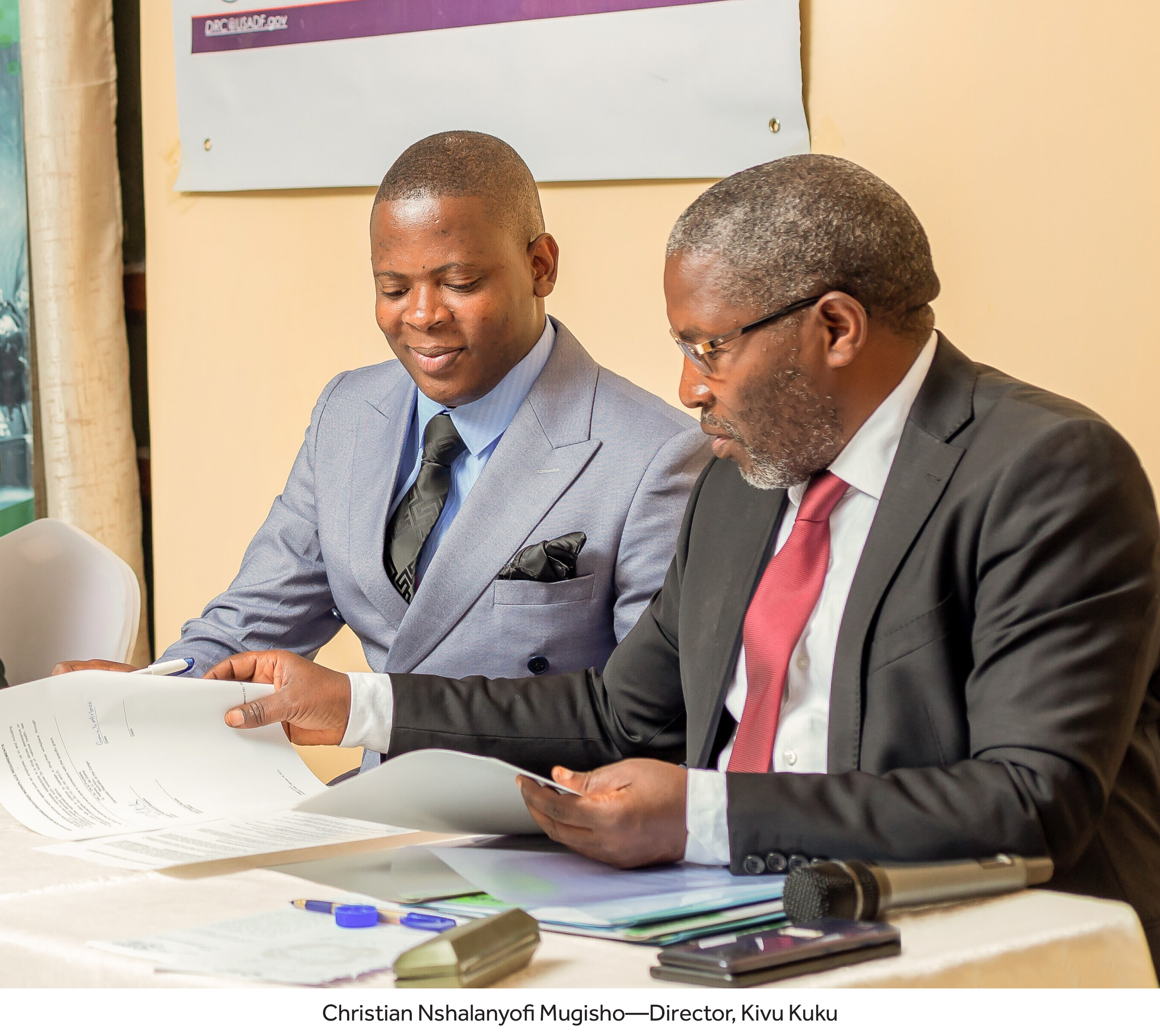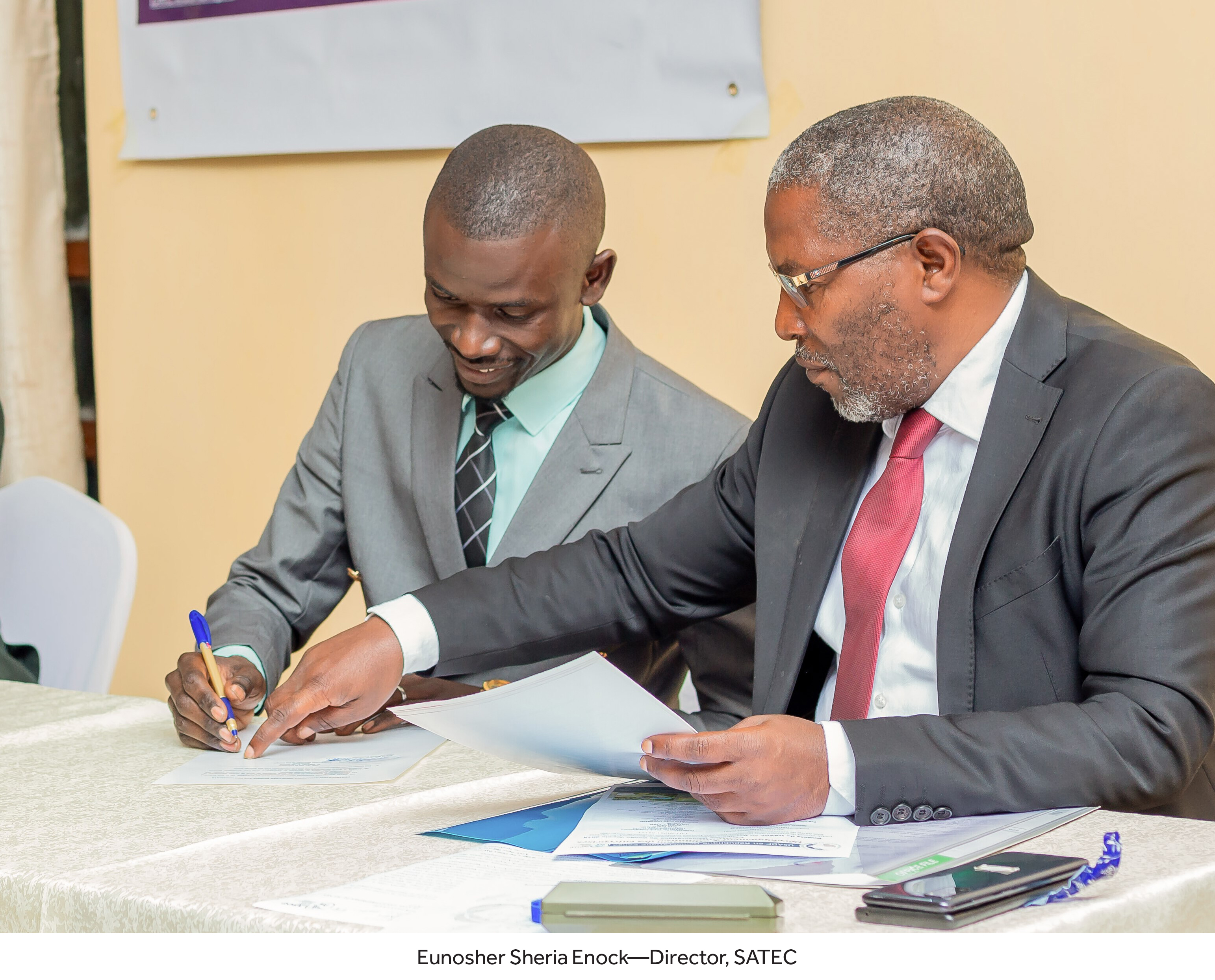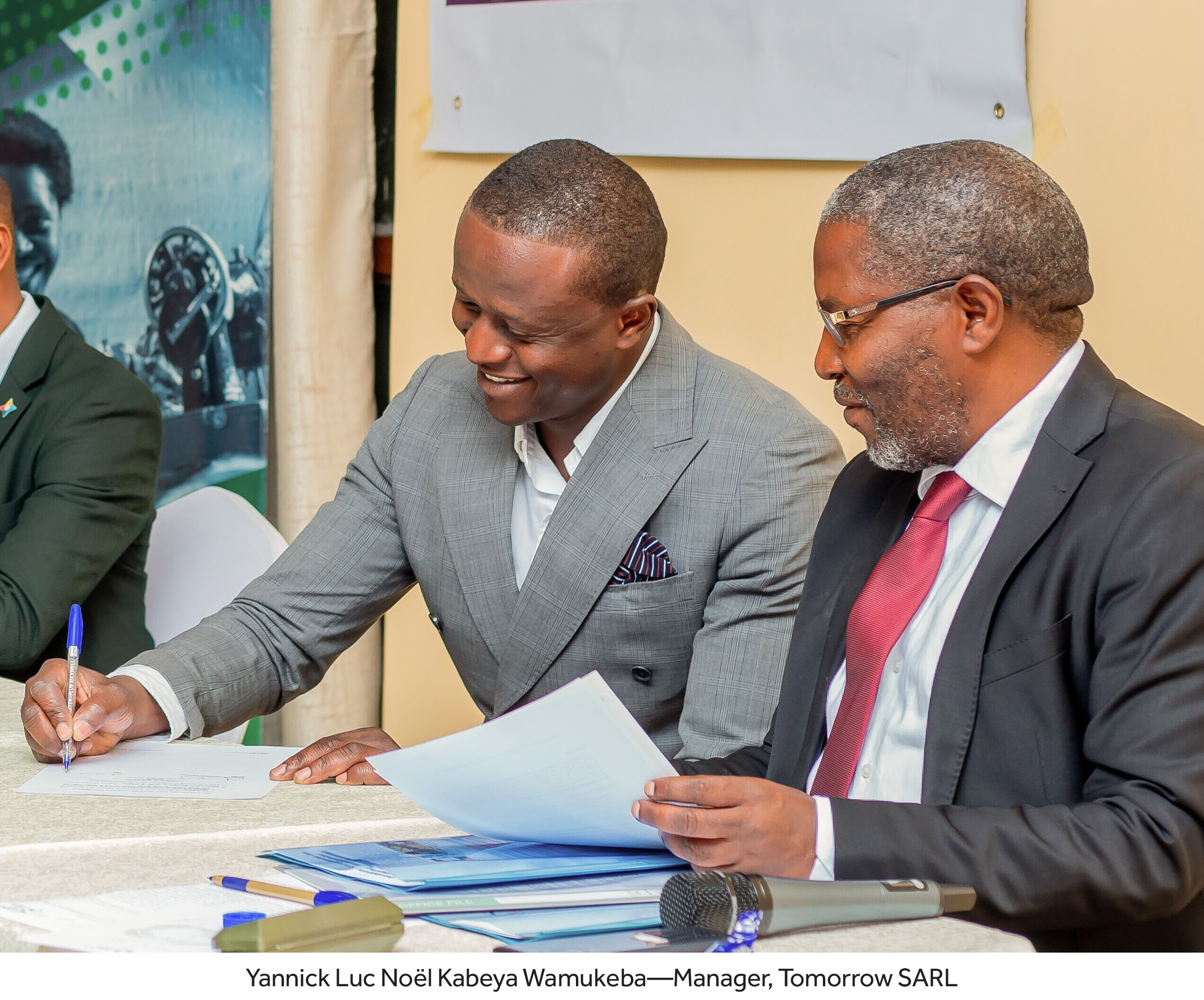Localized development models, such as those that elevate community innovation, use in-country management, and invest directly in grassroots enterprises and entrepreneurs, have proven to be both effective and efficient. These development models contribute to peace, security, and poverty alleviation in the communities where they are applied, indicating that the future of successful development lies in the support of local, community-based approaches. Localized development has been at the heart of the U.S. African Development Foundation’s (USADF) model since its founding in 1980.
Sharing this mission to promote locally led development, USADF and the Eastern Congo Initiative (ECI) have partnered to support three enterprises from the Democratic Republic of the Congo (DRC). Each business is creating prosperity and opportunities for their communities with a focus on lasting change and long-term growth. On Saturday, February 19, USADF awarded these enterprises with catalytic grant funding totaling US$200,000, including technical assistance from USADF’s African technical partner in the DRC, Action Sociale et d’Organisation Paysanne (ASOP). Through this initiative, the grantee enterprises have also received technical assistance from ECI, which has provided resources to strengthen the organizational capacity of the enterprises while leveraging investments for their expansion to both international and local markets.
“Although youth entrepreneurship is a priority of the Congolese government, businesses are struggling to materialize due to lack of financial means,” stated ASOP Director Félicien Zozo Rukeratabaro. “These grants will contribute not only to the economic development of these enterprises, but also to food security in the DRC. A considerable number of jobs will be created, ultimately supporting the local economy and local entrepreneurship.”
Kivu Kuku Poultry Farms SARL
In response to the DRC’s reliance on the import of eggs, chickens, and poultry feed from Belgium, Turkey, and neighboring African countries, Kivu Kuku is providing a local alternative. This enterprise is involved in the industrial production of hatchlings, chickens, and livestock feed, as well as the processing and packaging of poultry meat. Unable to expand its business before receiving USADF funding, the enterprise now plans to construct a chicken coop for breeding stock and purchase livestock equipment to facilitate the raising of more chickens. By the end of the project, Kivu Kuku will have increased its revenues, broadened its customer base, improved its technical and organizational capacity, and contributed to increased food security.

Sapientia Technology and Engineering Company (SATEC)
SATEC specializes in the design and assembly of electric egg incubators used by farmers in chicken production. Lacking the financial capital to expand its business, SATEC sought funding to increase its capacity and ultimately reduce food insecurity in the DRC’s Kivu region. With USADF funding, SATEC will be able to equip its production workshop with tools such as 3D printers, laser cutters, and other electronic components required to produce high quality, high-capacity incubators. The group also aims to increase its organizational capacity through several trainings on proper accounting, financial management, and electric simulation software, hiring local consultants to do so. Through this project, SATEC hopes to meet the high demand for meat in the region, producing affordable and quality sources of protein for the regional community.

Tomorrow SARL
Tomorrow SARL’s mission is to enhance the value of the local agricultural sector through the use of modern cultivation techniques, promote the local agri-food industry, and ensure rural and peri-urban employment for women and youth. Tomorrow SARL recognizes the opportunity to simultaneously grow the local agriculture industry while providing employment alternatives to common and dangerous practices such as mining. This company engages in the harvesting, processing, and sale of quality and nutritious maize flour for consumption as well as maize bran which is recycled and sold as fertilizer. With grant funding from USADF, it will purchase and install a maize milling machine, construct an equipment shed, equip its tractor with a seed drill and fertilizer sprayer, purchase a motorcycle to allow its field agents the ability to easily carry out inspections, and procure a grain dryer to improve both grain quality and storage of finished products. Previously lacking the seed capital to increase its production, Tomorrow SARL is now on track to fulfilling its mission of improving the standard of living in its community.


